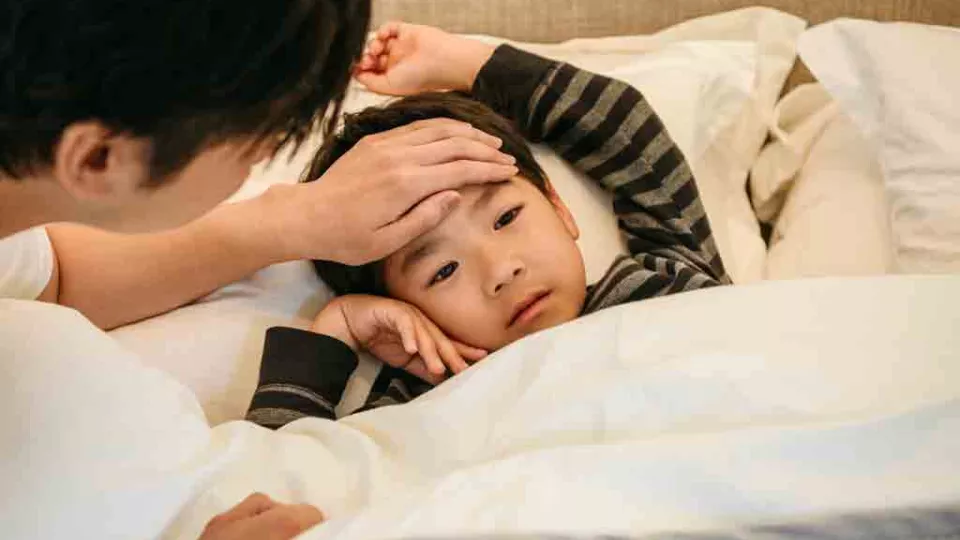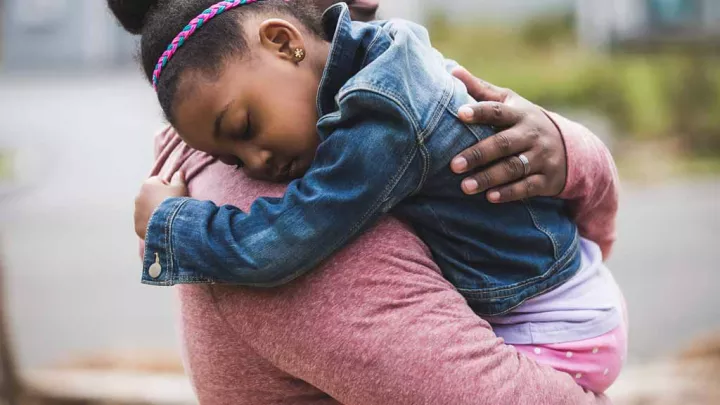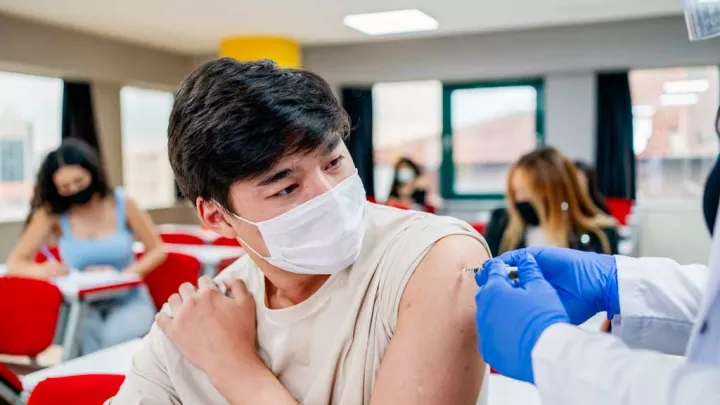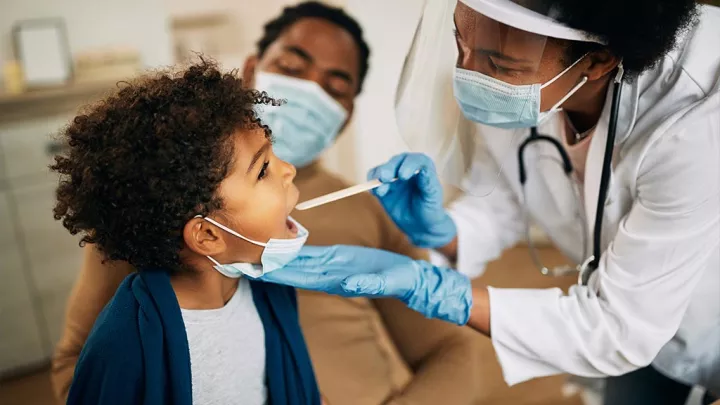
Long COVID in Kids: A Path to Recovery
Some teens can’t get back to the sports they love. Other children can no longer get through a school day—or even walk up a flight of stairs. Still others feel “off”—and anxious and depressed, too.
The culprit? Long COVID, a mysterious condition that can last weeks or months after infection with the virus that causes COVID-19. While most media coverage has focused on long COVID in adults, the condition is also taking a toll on younger patients.
“We see it in healthy children, healthy adolescents,” says Michael Neely, MD, MSc, FCP, Chief of the Division of Infectious Diseases at Children’s Hospital Los Angeles. “It’s very much under-reported. We suspect there are a significant number of children who are suffering from longer-term consequences of their COVID infections, even if their initial illness was quite mild.”
To help ensure these children and families get the care they need, Children’s Hospital Los Angeles recently launched a Long COVID Recovery Care service. Focused on patients under age 21, the comprehensive care aims to help children along the road to recovery.
“Right now it’s very hard to find this kind of care, and many families are frustrated,” explains Sindhu Mohandas, MD, a pediatric infectious disease specialist at Children’s Hospital Los Angeles. “These children really need a place where they can receive the proper care.”
What Is long COVID?
Most people—adults or children—who get COVID-19 recover within three to four weeks. But sometimes, patients continue to experience symptoms beyond that four-week mark, even after testing negative for the virus.
“Once those lingering symptoms persist beyond four weeks, that’s when we start thinking about long COVID,” Dr. Mohandas says.
Unfortunately, because long COVID is a new condition, not much is known about it. Based on early study results, approximately 15% to 30% of adult COVID-19 patients go on to have long COVID symptoms. Much less is known about how many children develop the condition.
So far, long COVID—sometimes called “long-haul COVID” or “post-acute COVID-19 syndrome”—seems to be more prevalent in adolescents ages 12 and older than in younger children. But again, no comprehensive reporting or studies have been completed yet.
It’s important to note that multisystem inflammatory syndrome in children (MIS-C), a rare inflammatory condition that affects some children four to eight weeks after COVID-19 infection, is just one of the ways that COVID-19 can have long-term effects. Children's Hospital Los Angeles has a separate clinic dedicated to MIS-C. Long COVID Recovery Care at CHLA handles the other prolonged symptoms after COVID-19 infection.
Long COVID symptoms
Children with long COVID may experience a range of symptoms, including:
- Unusual fatigue
- Shortness of breath
- “Brain fog” causing memory loss or difficulty concentrating
- Sleep disorders
- Unexplained fevers
- Gastrointestinal symptoms
- Anxiety
- Depression
In addition, doctors look for:
- Symptoms that last longer than four weeks
- Symptoms that began during or after a COVID-19 infection
- One or more symptoms that interfere with daily life
Because many of these symptoms can be caused by other conditions, diagnosing long COVID can be challenging. Many people, including children, were never adequately tested for COVID-19. And some kids may have had only mild symptoms while infected, or none at all.
If a child never had a positive COVID-19 test, doctors look for other ways to see if the coronavirus was a factor.
“We look at both the patient history and the family history,” Dr. Neely explains. “For example, maybe everyone in the family got sick. We’re looking for something that either proves or strongly suggests that the child had COVID.”
A mono-like illness?
If your child has any of the above symptoms, it’s important to see your pediatrician. If your doctor agrees that long COVID may be involved, he or she may refer you to Long COVID Recovery Care.
At Children’s Hospital Los Angeles, long COVID patients are first seen by an infectious disease doctor for a comprehensive evaluation. From there, the doctor may refer patients to one of the hospital’s many subspecialties—including Cardiology, Pulmonology, Neurology or Behavioral Health.
Those specialists can help rule out other conditions or organ damage and provide a plan of care to address a child’s specific symptoms and any needed psychosocial support.
Unfortunately, though, there is no cure or proven treatment for long COVID.
“I think of long COVID as a little like mono,” says Jeffrey Bender, a pediatric infectious disease specialist at Children’s Hospital Los Angeles. “Mono is a big viral illness, and it can knock kids down for a while. Teenagers, especially those who are involved in a lot of activities, have a tough time recovering from mono. It can take months and months to get back. And that’s similar to what we’re seeing with long COVID.”
‘Will I get better?’
Not surprisingly, many children and teens struggle emotionally when long COVID drags on, preventing them from participating in their normal activities.
“They all want to know, ‘Will I get better?’” Dr. Bender says. “I tell them, ‘I think so. All of the kids I have seen report improvement with time. But there's still not enough data yet to know what all of the long-term effects may be. You have to give your body a chance to rest and recover from this.’”
He adds that many of his patients have indeed now fully recovered from long COVID, although it took many months. Families also feel relief just talking to a doctor who can diagnose the condition.
“Recognizing that this condition is real and that other children have it, too, is very reassuring for them,” Dr. Bender says. “It gives them that first step toward recovery.”
Another avenue for hope: research. Children’s Hospital Los Angeles is participating in a phase 1 National Institutes of Health (NIH) study on the long-term health effects of COVID-19 in children and adolescents. The study is particularly focused on impacts the virus may have on the heart, lungs, kidneys, diabetes and obesity, and brain function and the mind.
“This is a massive NIH effort to understand long COVID in children and identify its prevalence and which patients are most at risk,” says Dr. Mohandas. “This kind of research is critical and will hopefully lead to better treatments in the long run.”
A shot of prevention
Meanwhile, the best way to prevent long COVID is to prevent COVID-19 in the first place. That means children ages 6 months and older (and adults) should get a COVID-19 vaccine as soon as possible. Everyone should continue to follow the recommendations of local health agencies as well.
“We want everybody to get vaccinated,” Dr. Bender says. “If kids are vaccinated, then they’re not getting COVID, and they’re not getting long COVID. Vaccination is first and foremost in preventing this. It’s the best way to keep kids safe.”


